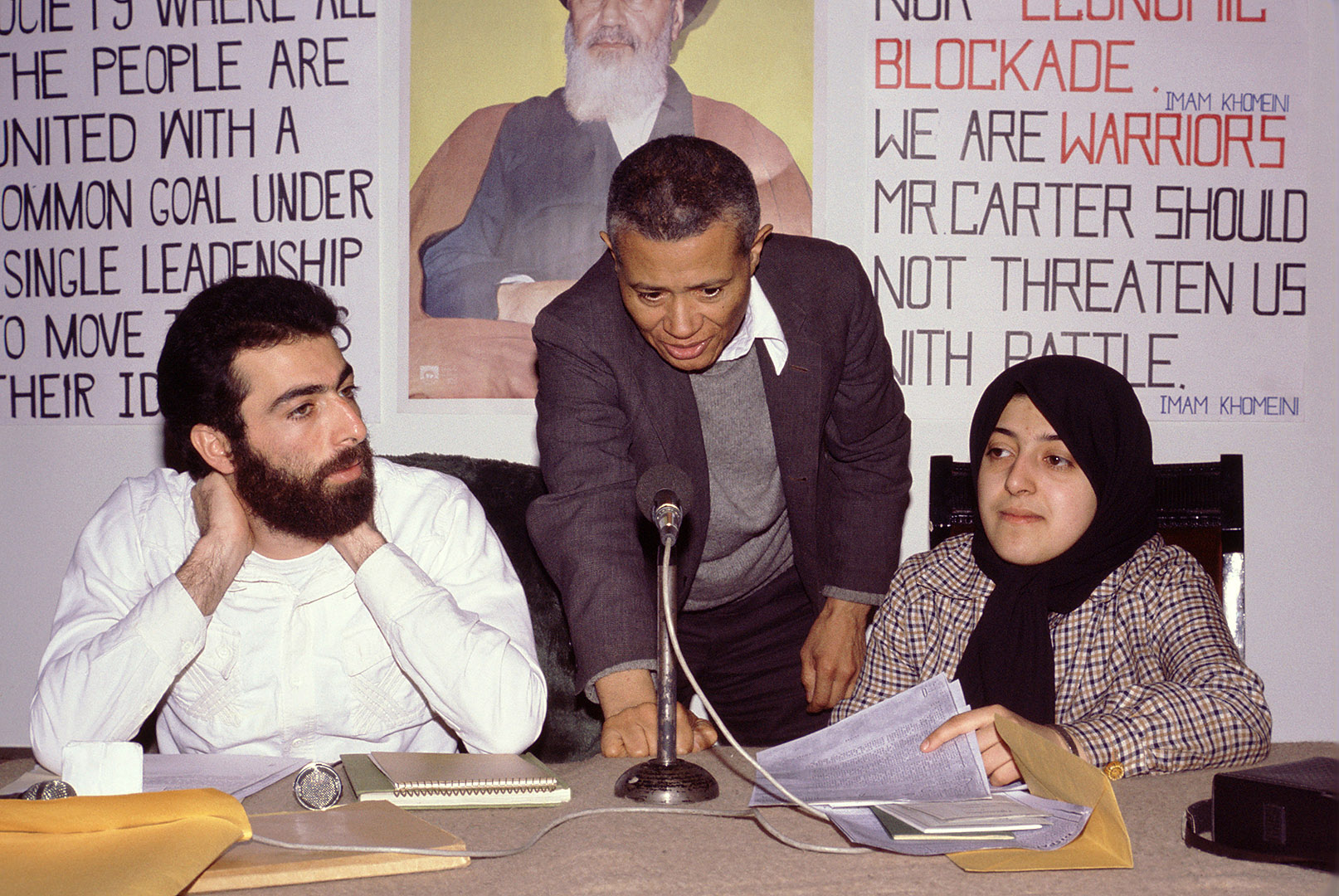
Mohammed Shwani’s parents grew up in Iraq under the regime of Saddam Hussein. As ethnic Kurds, they were persecuted, forced to live amid war and the threat of chemical attacks, with no hope for their own schooling.
Mahdi and Hozan Shwani wanted more for their son. A week ago they were on campus for the realization of one of their dreams for him: the completion of a college degree.
Believed to be the first Bates graduate from Iraq, Mohammed Shwani earned his politics degree summa cum laude with the Class of 2024 on May 26. He called his graduation “a celebration of resilience, family, and dreams realized against all odds.”
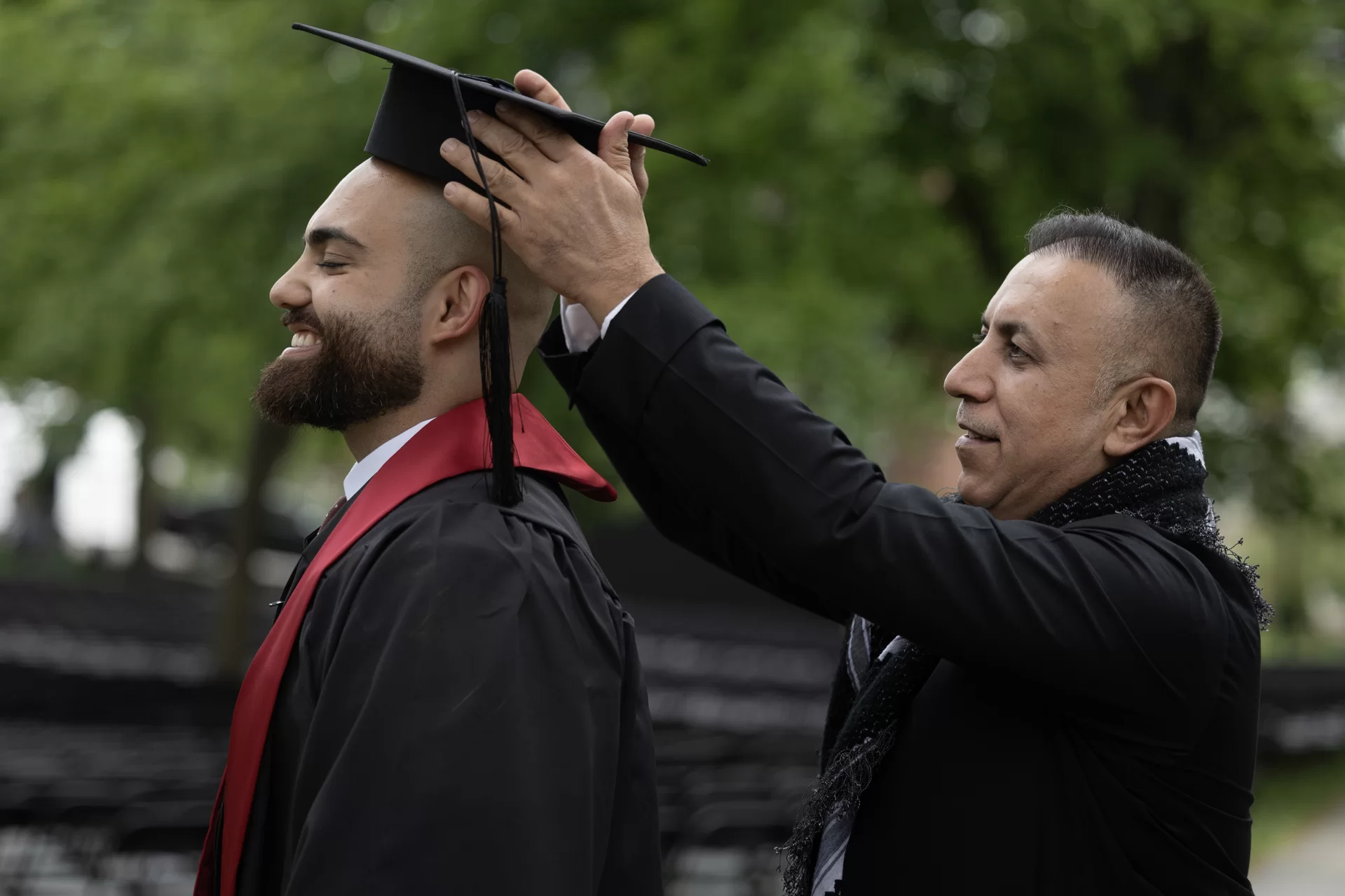
“Our journey has been one of resilience and survival,” Mahdi and Hozan Shwani said. “Living within the confines of a war, we couldn’t dream of a world beyond our immediate struggles. Witnessing our child’s graduation from Bates College fills us with indescribable pride and a touch of awe.”
Mohammed Shawani had a chance to show his abundant gratitude to his parents, and to Bates, in a public way, as the featured speaker at the reception and dinner hosted by the Office of Intercultural Education Commencement two days before Commencement.
Here are his remarks:
It’s a surprise, honestly, that Bates saw fit to have me stand before you today, given that my English journey kicked off at 14 years old with nothing but an old Oxford dictionary and lengthy chats with my reflection in the mirror. Somehow, I managed to persuade Bates to allow me to bring that very dictionary to the podium. So, if you catch me glancing down today, you’ll know I’m just visiting an old friend for a bit of inspiration.
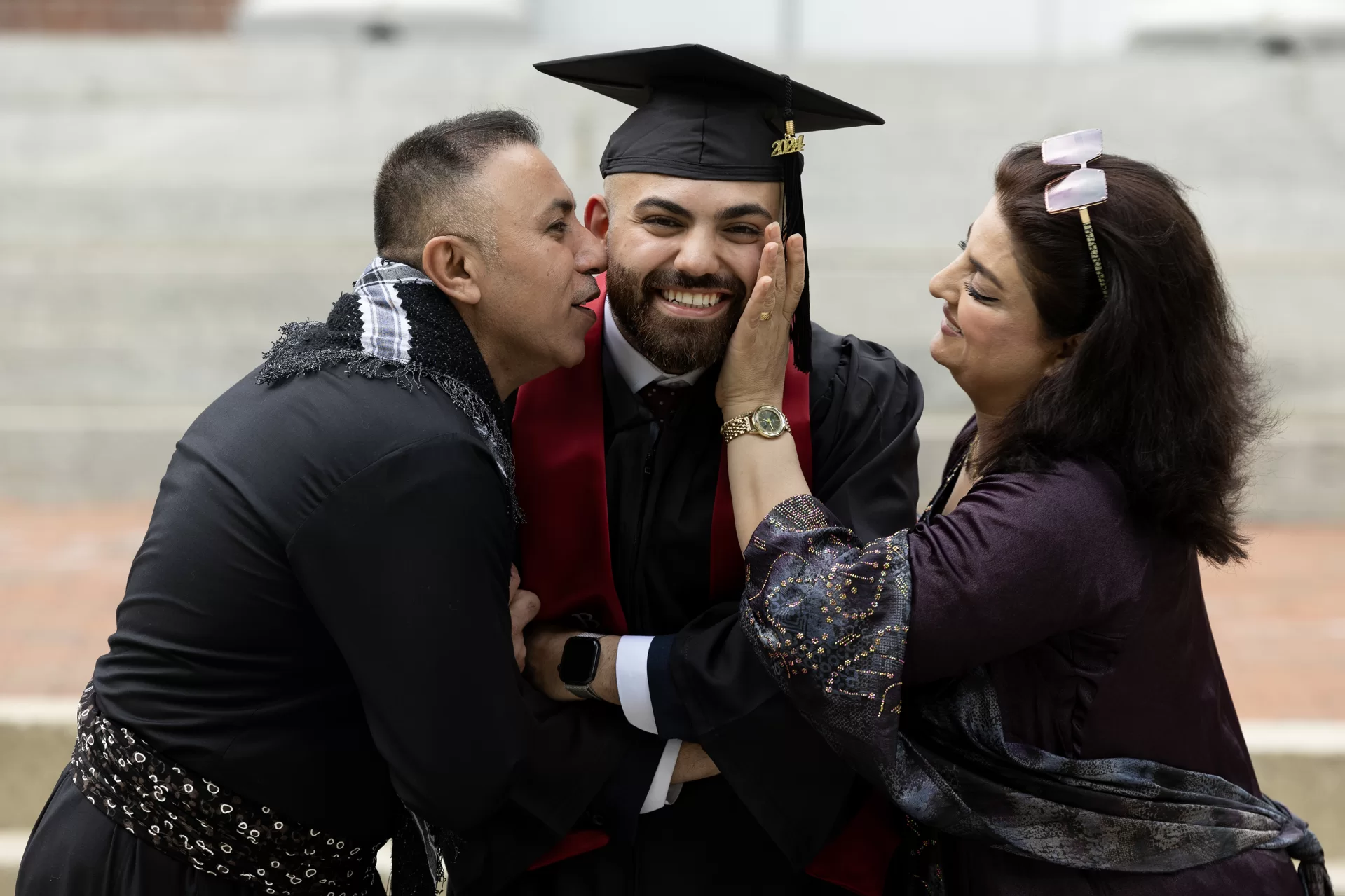
As an aspiring lawyer, my mission today is to convince you to boldly go where not everyone goes— away from the mainstream. By the time I conclude my argument, if I’ve swayed you, then it’s clear I’m lawyer material. However, if I fail, then it’s likely Professor [Stephen] Engel made a grave mistake passing me in constitutional law, and I probably have no business graduating this weekend. Let’s hope for my sake, I make a compelling case!
Here are the facts: You are born into a world torn apart by war. You are learning in schools that seem to be falling apart just as fast as Iraqi cities around you. School turns into just memorizing facts among the ruins. But everyone tells you it’s your only hope for a better tomorrow. So faced with that reality, what would you do?
I did something not many people would — I left school.
If you are a parent, your heart probably just skipped a beat. That’s exactly how my parents felt when I went from a straight-A student to barely passing classes and not going to school all together. And I don’t blame them.
You see, my parents were born poor and had endured the Saddam Hussein regime. At 9, my dad was stashed into a bus’s engine as they were fleeing Saddam Hussein’s chemical attacks and persecution of the Kurds. My grandfather many years before had escaped getting hanged at least a few times. My parents’ brushes with conflict had left them fearful, never having finished school, and clinging to the belief that traditional education and good grades were the surest way to secure my future.
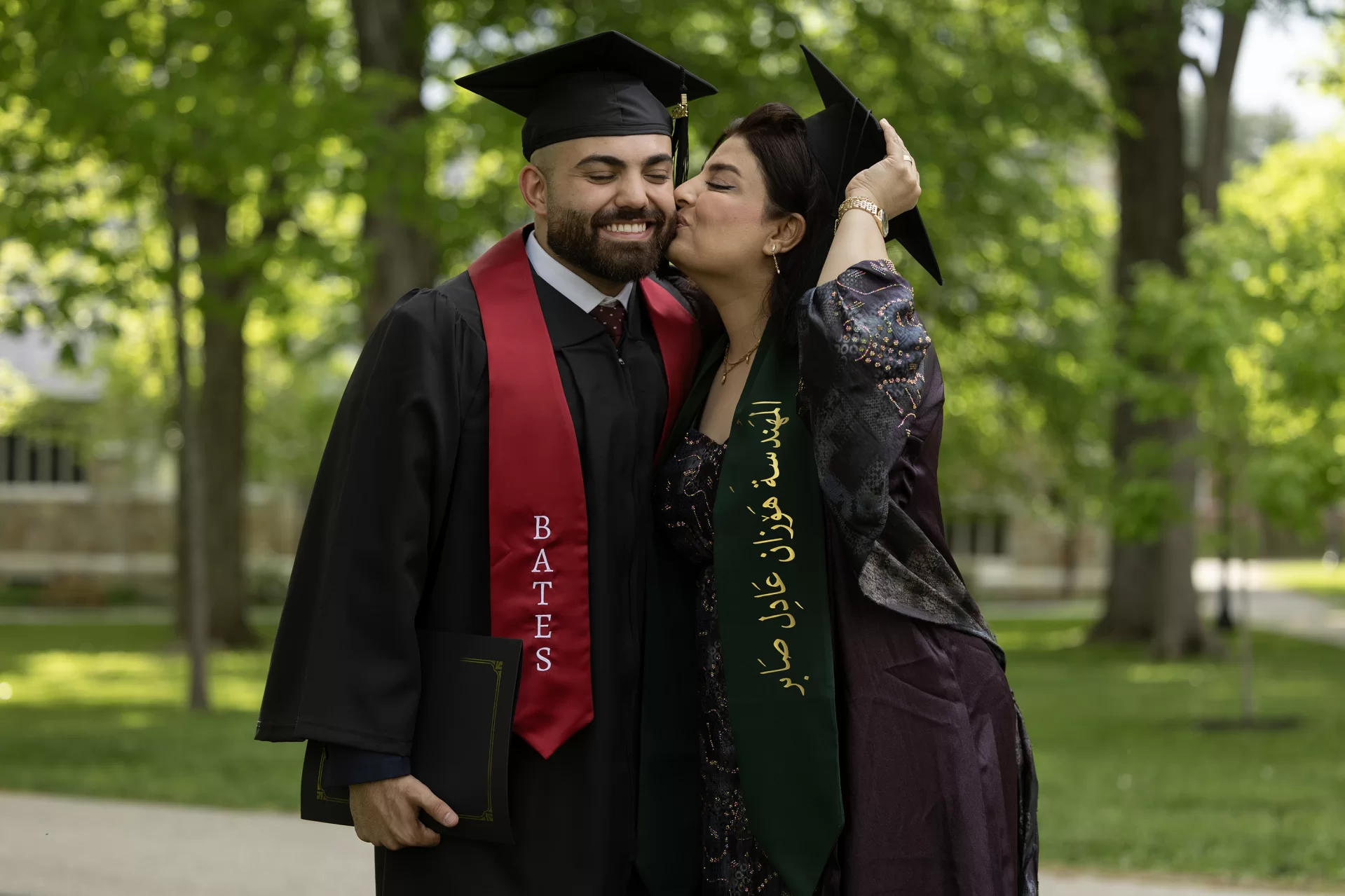
But a part of me — call it naiveté or intuition — could not accept this mindset. For much of my life, my mom would construct scenarios of my death she imagined whenever I left the house. I often ignored her warnings. But when ISIS bombed my school, her stories neared reality. My mother’s words consumed me as I carried the bodies of the injured.
These adversities made me doubt the safety of following the crowd. I understood that to make it through, I needed to carve out my own journey, to seek personal growth on my terms. Like obsessing over this dictionary instead of going to school. Without it, I wouldn’t be here. Frankly, I don’t even know if I would be alive.
“Every person has faced their own battles. Some of us have faced wars in our countries, others have fought personal battles that no one else can see. The message I want to impart is not about the adversities themselves, but about how we respond to them.”
Mohammed Shwani
Look, you don’t need to have experienced war to take away the essence of what I’m sharing with you today. Every person in this room, every student, faculty member, and guest, has faced their own battles. Some of us have faced wars in our countries, others have fought personal battles that no one else can see. The message I want to impart is not about the adversities themselves, but about how we respond to them.
You don’t need to have survived a war to understand that life’s true education often happens outside the traditional classroom. It happens when we’re pushed to our limits, when we’re forced to reconsider what we thought was the only path forward. My journey taught me that the mainstream path isn’t the only one to success. In fact, sometimes, it’s the detours, the roads less traveled, that lead us to our true destinies.
But ironically, somehow, I forgot about all this when I came to Bates. It was here that I found safety. For the first time in my life, I had the opportunity to ask what do I want to do? instead of just surviving. Bates gave me the answer.
Coming from a place where the norm was chaos and lawlessness, I found myself here at Bates, drawn to the law, believing it was my calling. Bates opened my eyes to the power of law, to the beauty of arguing a case, to the thrill of engaging with complex issues. But somewhere down the line, I got a bit lost. I started chasing grades, eyeing that prestigious law firm job, thinking, “This is it. This is success. Safety. This will finally prove that I am…smart, worthy, enough.”
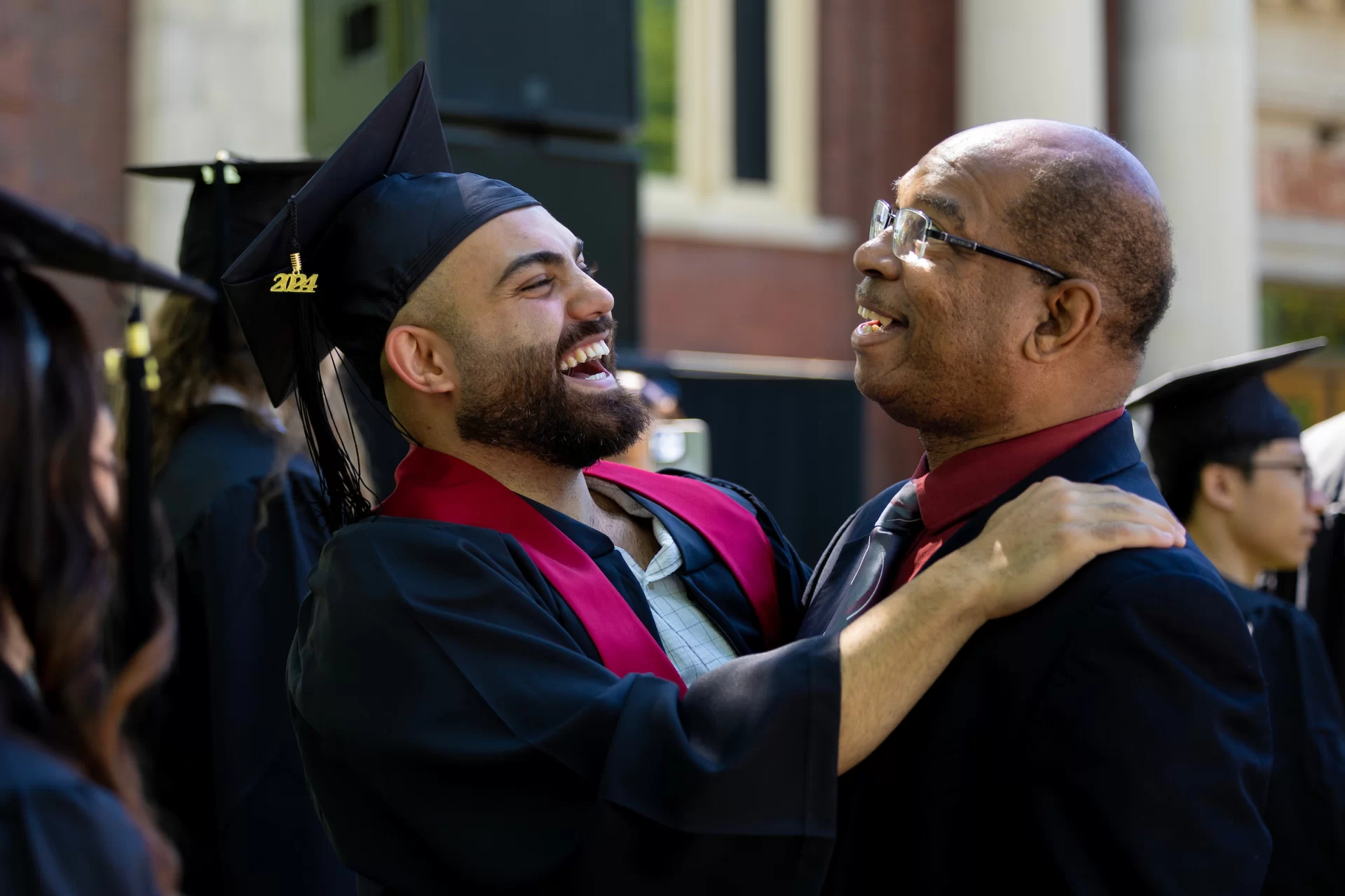
But you know what? It felt a bit off. Like wearing a shirt that’s too tight — looks good, but man, does it feel constraining. I realized I was marching down a path that was more about ticking boxes than truly living. Bates taught me to think, to argue, to write — some say even better than ChatGPT. But it also taught me something more crucial through the close relationship I enjoyed with you all, professors, staff, and friends: to stay true to myself.
Where else do you get this opportunity?
There I was, thinking I had to follow this straight path to be successful, to make my mark. But the real lesson professors kept reminding me of? It’s not just about law, or any one path. It’s about finding what makes you leap out of bed in the morning. For me, it started with ditching school for a dictionary and ended up here, at Bates, where I could debate Supreme Court cases, hike Katahdin with the outing club, and discover a love for running I never knew I had.
To the parents out there, I get it. I know how terrifying it must be to watch your kid choose a path you wouldn’t have chosen for them. But here’s the thing—Bates reminded me that sometimes, that’s exactly where you need to go. It’s not just about safety or risk; it’s about finding your own rhythm, your own path to happiness and fulfillment.
“I remember begging my dad at 14 to take me to the U.S. Embassy to ask about getting a visa to study in the U.S. He dismissed it as a daydream, saying, ‘People like us will never be able to get a visa, let alone to the U.S.’ But here I am, having turned that so-called fantasy into my reality.”
Mohammed Shwani ’24
To the students, I say: Don’t be afraid to follow your intuition, even when it leads you away from the conventional path. I ask you not just to consider the path less traveled but to embrace it with open arms. Whether it’s through pursuing unconventional careers, seeking education beyond the walls of institutions, or simply living in a way that feels true to you. Don’t worry if your journey doesn’t look like everyone else’s.
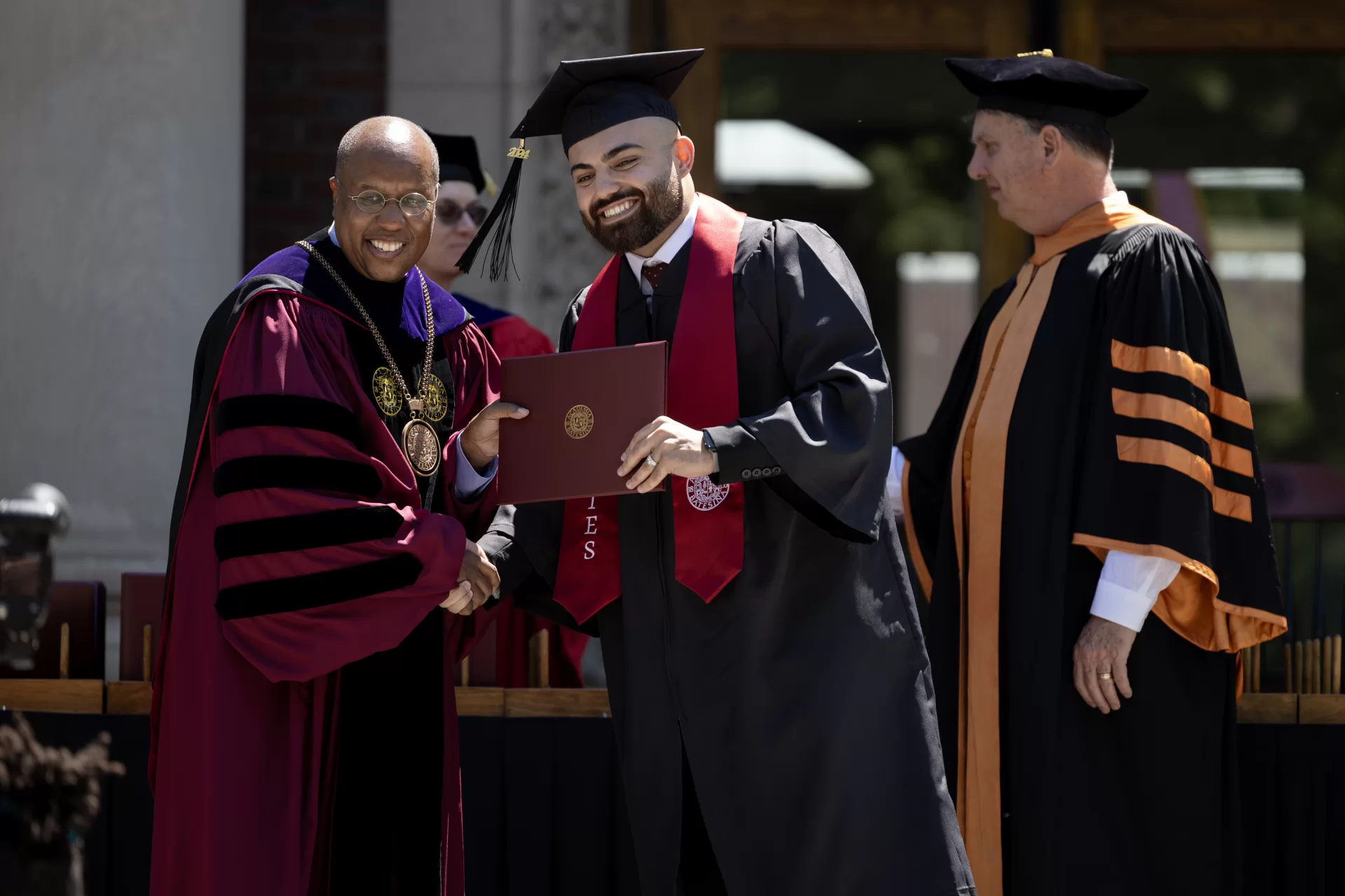
Let’s take that leap, not into the unknown, but into what we truly love. Let’s make our mark, not by following the path laid out for us, but by blazing our own, fueled by the passions Bates helped us discover and the resilience we’ve built along the way. And if my words today have inspired you to even consider that there might be more out there for you, then I believe I’ve made my case.
As I stand here, I remember begging my dad at 14 to take me to the U.S. Embassy to ask about getting a visa to study in the U.S. He dismissed it as a daydream, saying, “People like us will never be able to get a visa, let alone to the U.S.”
But here I am, having turned that so-called fantasy into my reality. And beyond just making it here myself, the fact that we’ve managed to bring my parents over for graduation feels nothing short of miraculous. I’m overwhelmed with gratitude for the friends and the support from Bates that made this seemingly impossible feat possible.
Welcome to Bates, Mom and Dad. Dreams do come true you know. But my new dream is not just about becoming a lawyer, it is to discover, accept and connect with my true authentic self. Whatever path that might be.
I rest my case.

